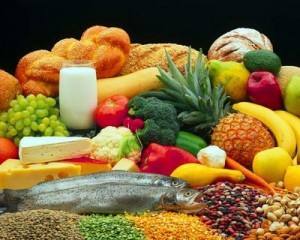Trying to decide what is the best type of carbohydrates to eat can be confusing. Are you better off eating vegetables or grains? The general consensus is both vegetables and whole grains are healthy but if your goal is to lose some weight, I would choose vegetables.
Now, I’m not saying that all whole grains are bad for you. If you are an endurance athlete spending hours training every day you might need to eat calorie dense foods like grains to keep you going. But if you are the average person interested in losing some weight or just keeping your weight under control, eating fewer grains and more vegetables could be a good idea for you.
The main problem with grains compared to vegetables is that for the same amount of calories, you get much more nutrition and food volume with vegetables. For example here is a comparison of 140 calories of whole wheat bread vs. 140 calories of broccoli:
Two Slices of Whole Wheat Bread
- 140 calories
- 1 gram fat
- 300 mg sodium
- 4 grams fiber
- 6 grams protein
- 24 grams carbohydrates
- 2 grams sugar
- 8% of your daily calcium
- 8% of your daily iron
- 12% Thiamin
- 12% Niacin
- 12% Folic Acid
- 4% riboflavin
4.5 Cups of Broccoli:
- 139 calories
- 1 gram fat
- 135 mg sodium
- 9 grams fiber
- 27 grams carbohydrates
- 9 sugars
- 13.5 grams protein
- 49.5% of your daily Vitamin A
- 607% of your daily Vitamin C
- 18% of your daily calcium
- 18% of your daily iron
- 18% Thiamin
- 13.5% Niacin
- 27% riboflavin
- 522% Vitamin K
When you look at the numbers, a vegetable like broccoli is far more superior than whole grain bread in its nutritional content based on calories. In general, vegetables give you the most amount of nutrition for the least amount of calories. In addition, broccoli is even higher in protein and lower in sodium.
When you are looking to eliminate calories from your diet to lose weight, try to pick foods that are calorie dense with the least amount of nutrition. Unfortunately grains can fall into this category. Just think you could eat 4.5 cups of broccoli that is loaded with nutrition or two slices of bread. What you should do is skip the bread and just eat two cups of broccoli and you just eliminated over 70 calories from your diet and ingested more nutrition then the 140 calories dense bread.
This also holds true for most vegetables. They will beat out grains almost every time. I know conventional wisdom keeps telling you to eat multiple servings of whole grains every day but eating too many grains can get you into trouble in your quest to control your weight.
If you want to look into whether grains are really healthy for you at all, check out this article by Mark Sisson titled Why Grains are Unhealthy.
Try reducing or eliminating the amount of grains in your diet for just two weeks and let me know how much weight you have lost and how much better you feel.
Article Courtesy of Mike Cola, Fitness Contrarian



